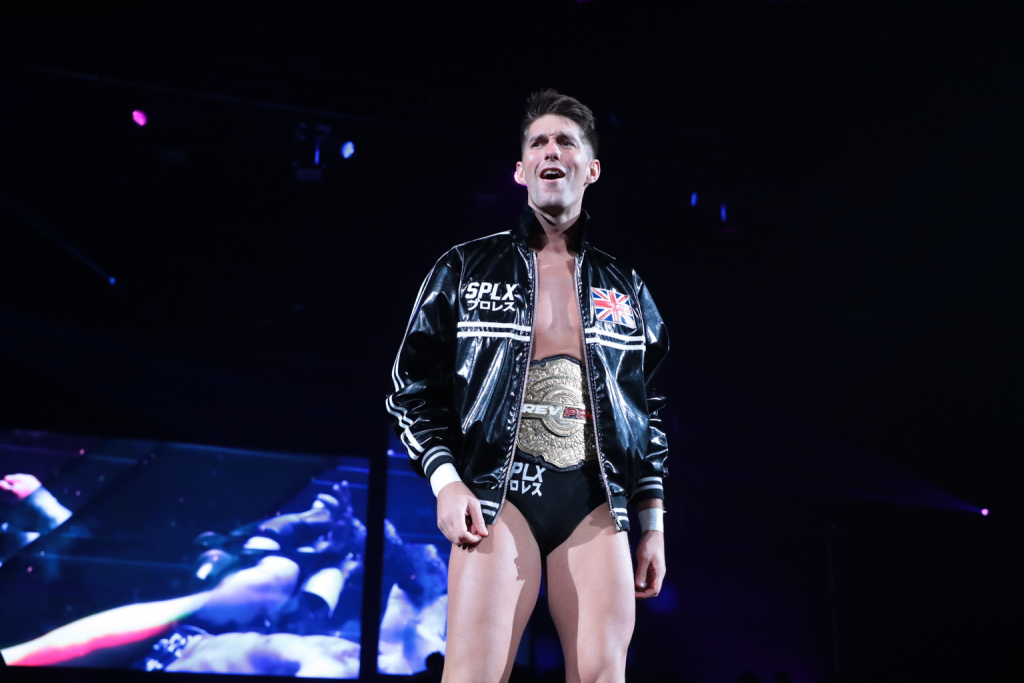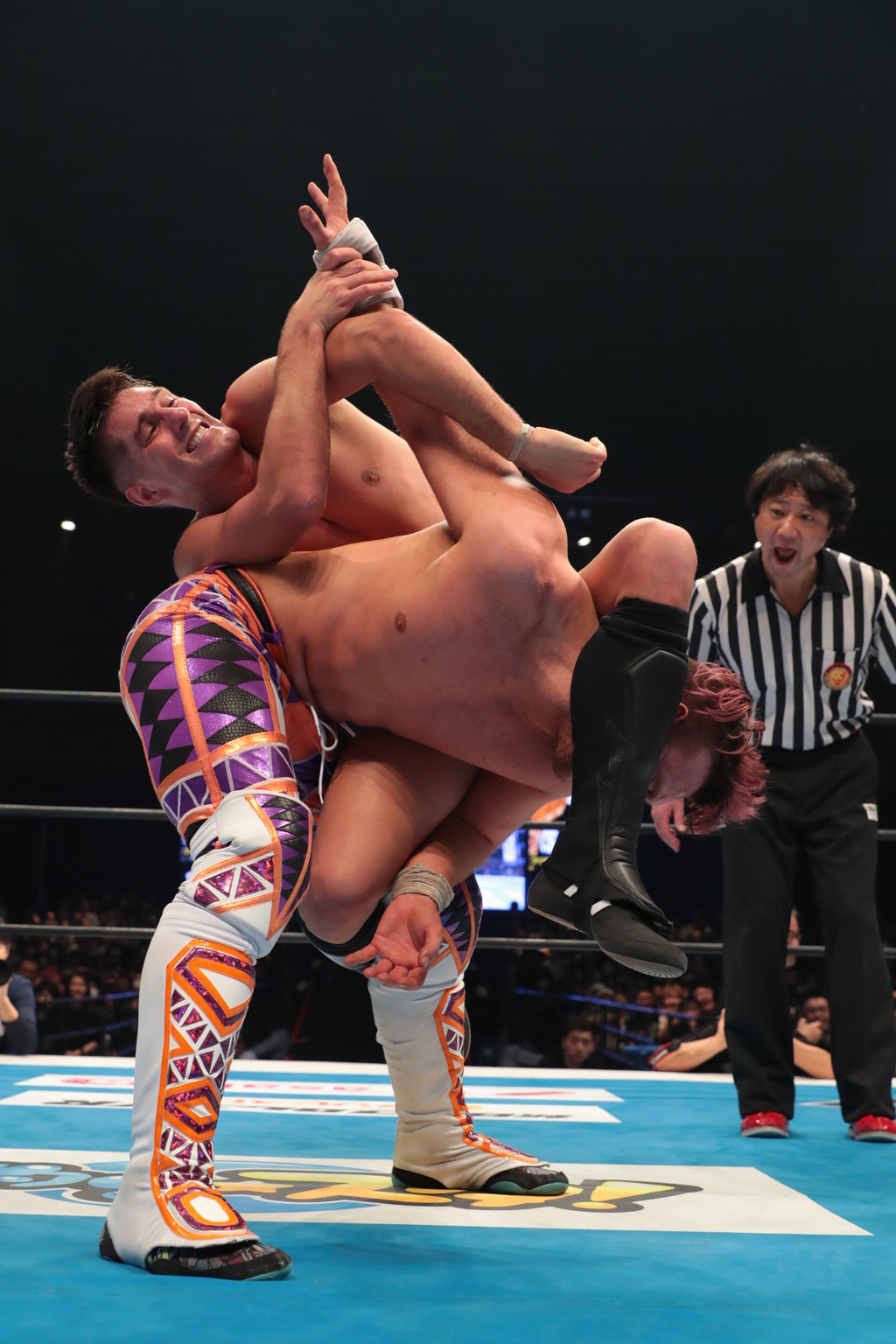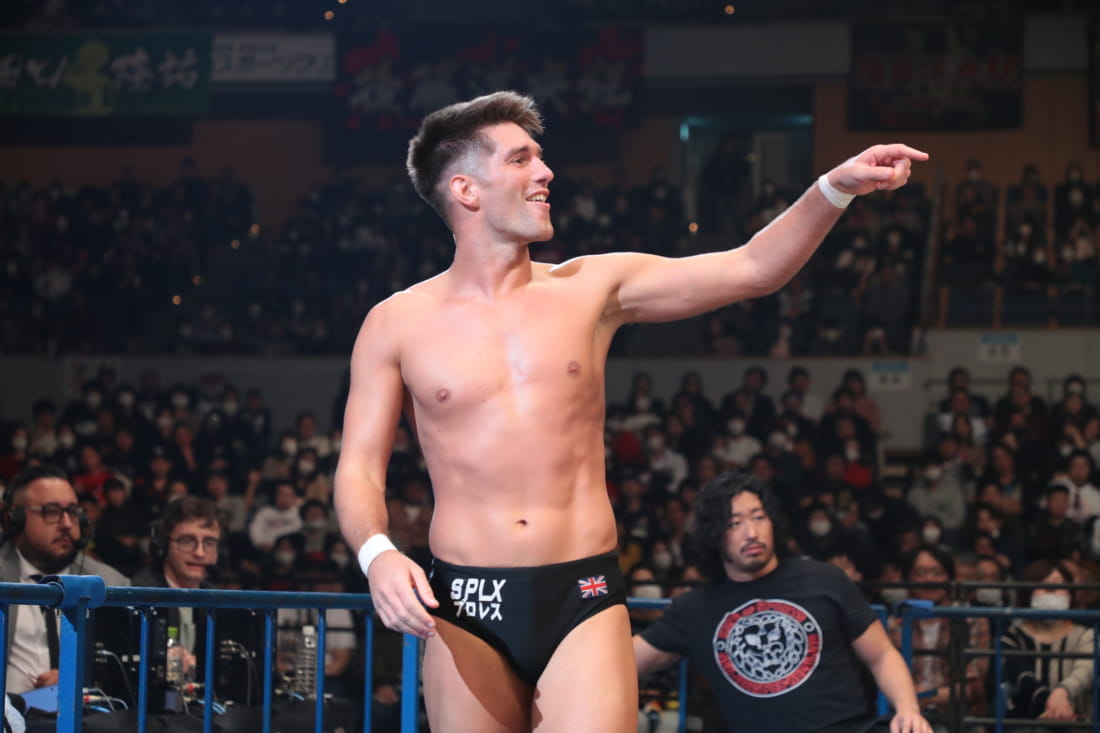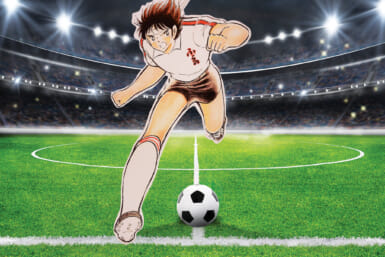Not too many young kids from the UK’s Isle of Sheppey dream of wrestling in Japan; even fewer turn those dreams into reality. Zack Sabre Jr. is the exception to that rule, and after nine years of slamming foes into canvases from Japan’s snowy northern climes to Okinawa’s tropical south, he stands tall as a marquee fighter on the NJPW (New Japan Pro Wrestling) roster.
Zack also made a name for himself as the only vegan pro-wrestler in Japan, so it’s fitting we met in the quiet Rainbow Bird Rendezvous vegan café in Nakameguro. As we chowed down on our vegetable repasts, he told me about the trials and tribulations of wrestling in Japan, of being a vegan in a country that still views adherents to the diet as culinary pariahs, and how he reconciles those two parts of his life.
So tell me Zack, how did you get into wrestling?
I was just a lifelong fan; I don’t remember one of those specific moments of realization that some wrestlers do. I came across an advert in Power Slam magazine for [Hammerlock] Wrestling School when I was fourteen – I know it seems absurd that there’s something as rational as that as an entry point to wrestling – but I went in the first week of January 2002 and it’s been my entire life since.
Why Japan? Did you have an interest in the country? Or was it wrestling in Japan specifically that drew you here?
Wrestling was always the primary focus for coming to Japan. Japanese wrestlers had a bit of visibility in American wrestling – WWF, WCW – when I was growing up, like Tajiri and Jushin Liger who I remember watching on free-to-air TV in the UK on Saturday afternoons.
Everyone used to bring VHS tapes to training, and I got given Super J-Cup ’94 which is one of the most famous tournaments in NJPW history. After seeing the way wrestling was presented in Japan, I didn’t just want to be a pro wrestler, I wanted to be a pro wrestler here. I was never a die-hard anime or Japanese pop-culture fan; Japanese pro wrestling was the equivalent for me.
What’s it like wrestling in Japan?
Japanese wrestling has a global influence, so the difference in the ring may appear smaller these days. But that said, pro wrestling in Japan is more physical and martial arts-influenced than the rest of the world. For me personally, I keep my style mostly the same regardless of where I am.
But it’s the approach the Japanese companies have and the respect from the media that’s the biggest difference. After a show I can go into Lawson and check out Tokyo Sports [newspaper] and see the results of the show that I was in; you’re not getting that with any tabloid paper in the UK. Wrestling is still viewed as entertainment in Japan, but it’s also grouped together with sports, as I think it should be.
“In Japan, everybody works as hard as they possibly can for the benefit of each other”
It’s hard to separate Japanese wrestling from Japanese culture; it’s definitely more professional than what I was used to, partly because they come through the dojo system. When you’re training, if you do something good, you need to do it another thousand times, if you do something bad: ten thousand times. It’s all about attention to detail. And there’s more of a team spirit. In American wrestling, it’s about individuals chasing their own goals. In Japan, everybody works as hard as they possibly can for the benefit of each other, and for the company as whole.
So, veganism. When did you turn to that?
After I came to Japan, so obviously I wanted to punish myself! I officially became vegan in 2015, but I always felt at odds eating meat and animal foods. Although growing up in the UK, it was easy to push it to one side because there was a big disconnect in the culture.
Being in Japan I was eating more meat or fish than I’d ever eaten before; [with NJPW] we travel all over the country and every region has their own speciality they want you to try. Then one day, I watched the [pro-vegan] Netflix documentary Forks Over Knives, and that was it. It showed me I could eat vegan and be healthy while having a positive impact on the treatment of animals.
So right now, what do you usually eat?
I am not a particularly great cook, but I bought a really good blender and usually have a massive smoothie in the morning with bananas, spinach, berries and vegan protein. I think frozen bananas are key for anyone trying to become vegan. I also eat starchy foods like oats, soba, sweet potatoes, and tofu and tempeh for protein. Japan is great because the vegetables are seasonal, so I feel like I can map out what I eat over the course of a year.
Do you find there are difficulties with being a vegan in Japan?
I obviously spend a lot of time on the road where I don’t have the benefit of a kitchen, so I make do as best as I can. Aside from dashi and katsuo flakes in and on bloody everything, food labeling is one of the biggest challenges. Trying to find vegan food on the road can be more difficult than other countries; like something as simple as an ume rice ball from Seven-Eleven may or may not contain dashi; labeling is much vaguer and it varies from region to region how its produced.
What kind of reaction has your veganism been met within the wrestling community?
I have introduced some wrestlers, like Kanamaru, to vegan protein, and if we get bento boxes, I would encourage some of the guys to try soy meat and things like that. For the most part they seem to think it’s a healthy dietary choice, but of course others are concerned that I’m not getting enough meat or protein. For me, my energy levels feel great because I’m mostly eating whole foods. [Points to his plate of deep-fried veggies.] I’d consider this a treat.
So what’s next for Zack Sabre Jr?
I would like to have another wrestling match again in my life! I also only moved here permanently at the start of this year, so I’d like to explore more of Japan and use my down time to do activities, like hiking, rather than dealing with constant jet lag and sleeping in hotel rooms.
“I also want to get as many people as I can speaking and thinking about animal welfare”
More broadly, I also want to get as many people as I can speaking and thinking about animal welfare. Whether that’s trying to eat less meat – one-hundred-and-twenty million animals are slaughtered for food every day, so something like meat free Mondays has such a massive positive impact – buying cosmetics and household cleaning products that avoid testing on animals, or avoiding buying fur or wool clothing. I think the impact we have on animal welfare is one of the few things in our lives we can take full control of.











